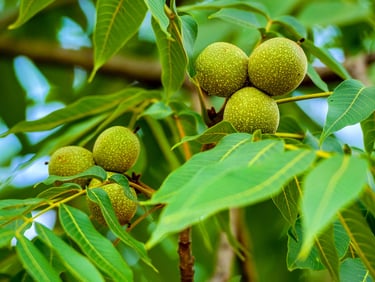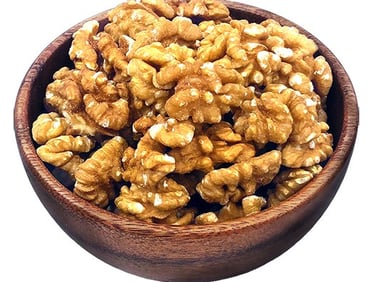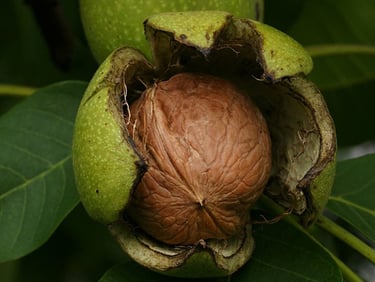Xinjiang walnuts have high nutritional value and are rich in fat, protein and other ingredients. The oil yield rate of some walnuts is as high as 67%. The nuts are crispy, fragrant and delicious, and are a nourishing delicacy; they are excellent raw materials for processing candies and cakes. Walnuts can also be used as medicine, with many functions such as nourishing qi, nourishing blood, moistening dryness and resolving phlegm, warming the lungs and moistening the intestines.The cotyledons in the nuts are fleshy and oily and can be eaten raw, made into cakes, or used to extract oil. A British research report suggested that eating walnuts as a meal would be more nutritious. Studies have pointed out that if it can be eaten as a dinner dish, 2 to 3 walnuts per meal can be eaten cold, stir-fried, cooked in porridge or made into fillings. It can not only supplement nutrition, but also ensure the intake of walnuts to strengthen the brain, lower blood fat and balance Cholesterol, heart protection and other benefits. Walnut oil is colorless and evaporates neither quickly nor slowly. It is the best solvent for diluting pigments in oil paintings. The most common variety is the common walnut.












